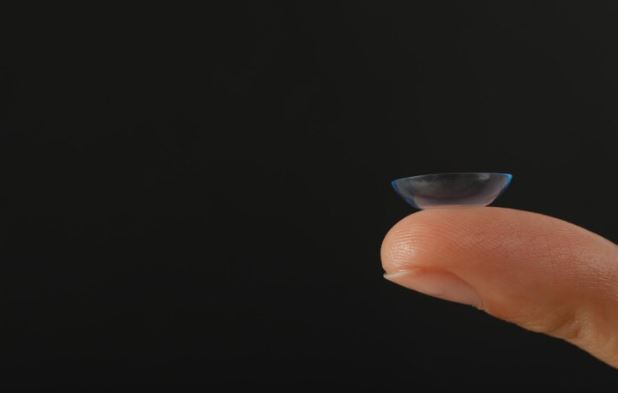Keratoconus is a progressive eye condition that affects the shape of the cornea, causing it to thin and bulge into a cone shape. This irregularity can lead to blurred vision, glare, and other visual impairments that can significantly impact daily life. Fortunately, Michigan Contact Lens offers specialized in Keratoconus treatments and solutions for patients, helping to manage the condition and improve vision.
In this article, we’ll explore what keratoconus is, how it affects vision, and the treatment options available through Michigan Contact Lens to help you regain clearer, more comfortable vision.
What is Keratoconus?
Keratoconus occurs when the cornea, the transparent front surface of the eye, becomes weak and starts to thin out. As it thins, the cornea begins to bulge forward, creating a cone-like shape. This distortion disrupts the way light enters the eye, leading to blurred vision, sensitivity to light, and distorted images.
The exact cause of keratoconus is still not fully understood, though it is believed to be influenced by genetic, environmental, and biochemical factors. In most cases, keratoconus begins in the late teens to early twenties and tends to worsen over time, though it can stabilize or progress at different rates for different individuals.
Symptoms of Keratoconus
- Blurry or distorted vision
- Frequent prescription changes for glasses or contacts
- Glare or halos around lights at night
- Double vision in one eye
- Eye irritation or redness
If you’re experiencing these symptoms, it’s essential to consult an eye care professional, as early diagnosis and treatment can help manage the condition more effectively.
Keratoconus Treatment Options at Michigan Contact Lens
At Michigan Contact Lens, a team of experienced professionals specializes in providing customized solutions for patients with keratoconus. Several treatment options are available to help manage the condition and improve visual outcomes, depending on the severity of the condition and the patient’s specific needs.
- Specialized Contact Lenses for Keratoconus
One of the most effective ways to correct vision in keratoconus patients is through specialized contact lenses. Traditional contact lenses are often ineffective for people with keratoconus due to the irregular shape of the cornea. Michigan Contact Lens offers a variety of advanced contact lens options tailored specifically to the needs of keratoconus patients:
- Scleral Lenses
Scleral lenses are large-diameter gas permeable (GP) contact lenses that rest on the sclera (the white part of the eye) rather than directly on the cornea. The design of scleral lenses creates a fluid reservoir that helps to smooth out the cornea’s irregularities, providing clearer vision and improving comfort. These lenses are highly customizable and ideal for people with advanced keratoconus. - Hybrid Lenses
Hybrid lenses combine the benefits of both rigid gas-permeable and soft contact lenses. The central part of the lens is made of rigid material to provide sharp vision, while the outer skirt is made of soft material for added comfort. Hybrid lenses are an excellent choice for patients with moderate keratoconus who need both clear vision and comfort. - Piggyback Lenses
Piggyback lenses involve wearing a soft contact lens underneath a rigid gas-permeable (GP) lens. The soft lens helps to provide comfort, while the GP lens improves visual acuity by compensating for the corneal irregularities caused by keratoconus. - Rigid Gas Permeable (GP) Lenses
GP lenses are small, rigid lenses that rest directly on the cornea. They are often used for patients with mild to moderate keratoconus and are designed to reshape the cornea and correct vision distortions.
Michigan Contact Lens will work closely with you to determine the best contact lens option based on the shape and condition of your cornea, as well as your lifestyle and visual needs.
- Corneal Cross-Linking (CXL)
For patients with progressive keratoconus, corneal cross-linking (CXL) is a treatment option that can help slow or halt the progression of the condition. During this procedure, ultraviolet (UV) light and riboflavin (vitamin B2) drops are applied to the cornea to strengthen the collagen fibers, making the cornea more rigid and less likely to bulge. Corneal cross-linking can help stabilize the cornea, reducing the need for frequent prescription changes and preventing further deterioration of vision.
At Michigan Contact Lens, your eye care professional will evaluate the progression of your keratoconus to determine if corneal cross-linking is a suitable treatment option.
- Intacs Corneal Implants
Intacs are tiny, clear, ring-shaped inserts that are surgically implanted into the cornea to help reshape its shape and improve vision. Intacs can be used in mild to moderate keratoconus cases to reduce the corneal bulge and improve the optical clarity of the eye. This treatment is particularly useful for patients who cannot wear contact lenses comfortably due to the shape of their cornea.
Michigan Contact Lens works closely with patients undergoing Intacs treatment to ensure optimal results, including pre-surgery evaluations and post-surgery care.
- Keratoplasty (Corneal Transplant)
In advanced cases of keratoconus where the cornea has become severely scarred or thinned, a corneal transplant (keratoplasty) may be necessary. During this surgical procedure, the damaged portion of the cornea is replaced with healthy tissue from a donor. While corneal transplant surgery is more invasive than other treatments, it can provide significant improvements in vision for patients with severe keratoconus.
Michigan Contact Lens can help guide you through the process of corneal transplant surgery, including pre-surgery evaluations, post-surgery care, and the use of specialty contact lenses after the procedure for optimal vision correction.
Why Choose Michigan Contact Lens for Keratoconus Treatment?
- Expertise in Keratoconus Care
Michigan Contact Lens has extensive experience in diagnosing and treating keratoconus. The team is dedicated to providing personalized care and developing customized treatment plans that meet the specific needs of each patient. - Advanced Technology for Accurate Diagnosis
Michigan Contact Lens uses state-of-the-art diagnostic tools, such as corneal topography and tomography, to map the shape and condition of the cornea. This technology helps the specialists design the most effective contact lenses and treatment plans for each patient. - Comprehensive Treatment Options
Whether you’re in the early stages of keratoconus or dealing with more advanced cases, Michigan Contact Lens offers a wide range of treatment options. From specialized contact lenses to surgical procedures, the team will work with you to determine the best solution for your vision needs. - Personalized Follow-Up Care
After your keratoconus treatment, Michigan Contact Lens provides thorough follow-up care to monitor your progress, make adjustments to your lenses, and ensure your eyes remain healthy. Regular check-ups and consultations help to optimize your results and ensure your ongoing comfort.
Conclusion
Keratoconus can significantly impact your quality of life, but with the right treatment, it is possible to manage the condition and achieve clearer, more comfortable vision. Michigan Contact Lens offers a variety of specialized treatments tailored to meet the unique needs of keratoconus patients, including advanced contact lenses, corneal cross-linking, Intacs implants, and more.
Whether you’re just beginning to experience symptoms of keratoconus or you’re seeking a long-term solution for managing the condition, the team at Michigan Contact Lens is ready to help you regain optimal vision and comfort.
Contact Michigan Contact Lens today to schedule a consultation and explore the best keratoconus treatment options available to you. With their expertise and personalized care, you can take control of your vision and improve your quality of life.



